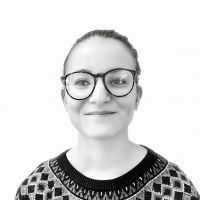
Université de Lorraine
IUT de Thionville-Yutz
Espace Cormontaigne
Impasse Alfred Kastler
57970 Yutz
My research activities focus on the bioremediation of soils contaminated with hydrocarbons and/or metals.
During my graduate assistant position (2023-2024) at the LSE, I will be helping to set up and monitor phytoremediation plots on a multi-contaminated pilot site. The aim will be to carry out physicochemical, molecular and ecotoxicological characterisations of the soil. At the same time, the plant biomass produced on the site will also be studied to recycle it. Citizen science with schools and the general public are also planned.
During my PhD and my Master's internship, I was particularly interested in improving the bioremediation of contaminants that are not widely available. My thesis work (Laboratoire Sols et Environnement, University of Lorraine) assessed biosurfactants' effectiveness in improving hydrocarbon biodegradation. As for my Master's internship (Laboratoire de Planétologie et Géosciences, University of Nantes), I studied the improvement of copper phytoextraction processes on vineyard soils associated with bioaugmentation in the presence of a siderophore-producing bacterial strain.
Since 09/2023: Graduate assistant at University of Lorraine (LSE laboratory / Thionville-Yutz University Institutes of Technology), teaching/scientific advisors: M. Le Jean / S. Henry
2022 - 2023: Graduate assistant at University of Lorraine (DevAH laboratory / Thionville-Yutz University Institutes of Technology), teaching/scientific advisors: P. Picquot / C. Schweitzer
2019 - 2023: PhD in Agronomic Sciences speciality defended on 08/30/2023 at the University of Lorraine, LSE laboratory, SIReNa doctoral school, co-direction of thesis: S. Ouvrard and S. Henry
2017-2019: Master's degree in environmental mapping and management, University of Nantes
TEACHING
Since 09/01/22, I have been a graduate assistant in the Biological Engineering (GB) department at the Thionville-Yutz University Institutes of Technology. I provide lessons (lecture course and practical work) in various fields to 1st, 2nd and 3rd-year students in Environmental Sciences and Ecotechnologies (SEE) and Food Science and Biotechnology (SAB) sections of University Bachelor of Technology.
Courses taught:
- Laboratory methodology and analytical techniques
- Study of biodiversity
- Analysis of a matrix
- Structural biochemistry and analytical techniques
- Scientific English
- Cartography and GIS
- Soil remediation
- Toxicology and Ecotoxicology
- Molecular Biology and Immunodetection
- Monitoring a treatment process (phytoremediation) and its impact on the environment
- Biological investigation and control methods
- Communication
- Environmental management tools
- Supervision of apprenticeship and internship (2nd and 3rd-year students of University Bachelor of Technology)
D’Incau E., Lépinay A., Capiaux H., Gaudin P., Cornu J.-Y., Lebeau T. (2021). Effect of Pseudomonas putida-producing pyoverdine on copper uptake by Helianthus annuus cultivated on vineyard soils. Science of The Total Environment 809, 152113. https://doi.org/10.1016/j.scitotenv.2021.152113


